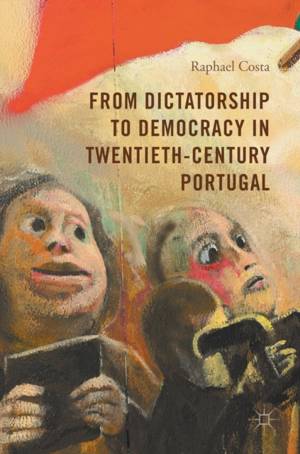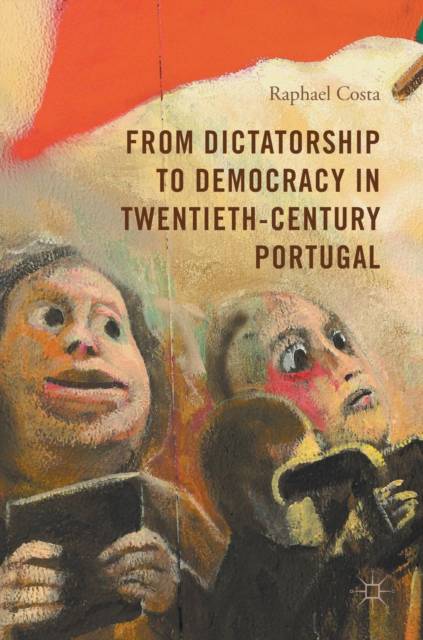
Je cadeautjes zeker op tijd in huis hebben voor de feestdagen? Kom langs in onze winkels en vind het perfecte geschenk!
- Afhalen na 1 uur in een winkel met voorraad
- Gratis thuislevering in België vanaf € 30
- Ruim aanbod met 7 miljoen producten
Je cadeautjes zeker op tijd in huis hebben voor de feestdagen? Kom langs in onze winkels en vind het perfecte geschenk!
- Afhalen na 1 uur in een winkel met voorraad
- Gratis thuislevering in België vanaf € 30
- Ruim aanbod met 7 miljoen producten
Zoeken
€ 129,95
+ 259 punten
Omschrijving
This book examines Portugal's transition from dictatorship to democracy by focusing on Lourinhã's urbanization and economic development since 1966. Since 1966, Lourinhã's urban landscape has transformed as Portugal democratized. From a rural town with little infrastructure and few institutions in 1966, Lourinhã emerged by 2001 as a modern European town. This work highlights key areas of economic and urban development and argues that Lourinhã's political culture became more institutional, creating a withering expectation of citizen participation in local development, as Portugal transitioned from dictatorship to democracy. Raphael Costa asks whether Portugal was on the path towards democracy before 1974, and if the rapid shift to democracy was the blessing it appeared to be by the 1990s. Did democratization ultimately disenfranchise the Portuguese in important ways? This work uses Lourinhã's development as an example of the Portuguese experience to argue that the Carnation Revolution, although a watershed in Portugal's politico-cultural evolution, should not be understood as the moment when democracy came to Portugal.
Specificaties
Betrokkenen
- Auteur(s):
- Uitgeverij:
Inhoud
- Aantal bladzijden:
- 271
- Taal:
- Engels
Eigenschappen
- Productcode (EAN):
- 9781137583673
- Verschijningsdatum:
- 24/02/2017
- Uitvoering:
- Hardcover
- Formaat:
- Genaaid
- Afmetingen:
- 148 mm x 210 mm
- Gewicht:
- 498 g

Alleen bij Standaard Boekhandel
+ 259 punten op je klantenkaart van Standaard Boekhandel
Beoordelingen
We publiceren alleen reviews die voldoen aan de voorwaarden voor reviews. Bekijk onze voorwaarden voor reviews.









